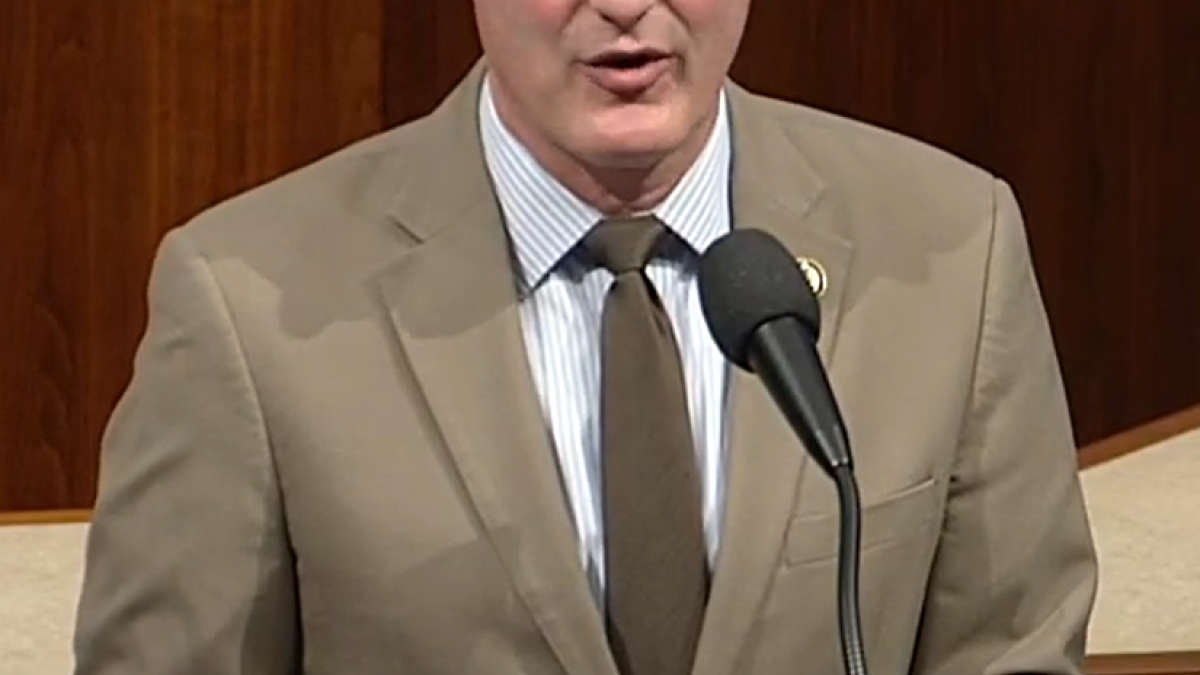Why Big First congressman says Big Beautiful Bill is a win for Kansas agriculture

The congressman representing the state's agriculture-heavy Big First district said farmers and ranchers got a win out of Washington, D.C.
There are "a lot of good things for our ag producers in Kansas that we were able to include in the One Big Beautiful Bill," said U.S. Rep. Tracey Mann, R-Kansas.
Mann spoke with The Capital-Journal by phone July 23. The Republican from Salina represents the 1st Congressional District, which spans from western Kansas to Hutchinson and up into northeast Kansas, including Manhattan and Lawrence.
The budget reconciliation bill, better known as the One Big Beautiful Bill, was passed by Republicans in Congress and signed by President Donald Trump on July 4. The wide-ranging legislation included "very important provisions for Kansas agriculture," Mann said.
"I think of it as Farm Bill 1.0," Mann said. "Specifically, able to strengthen crop insurance, also able to raise the reference prices for ARC (Agriculture Risk Coverage) and PLC (Price Loss Coverage) programs, which really solidifies and strengthens the farm safety net that Kansas ag producers and particularly Kansas farmers rely on."
American Farm Bureau Federation economists reported that Congress added about $66 billion over a decade to farm programs. Of that, $59 billion goes to enhancing core farm safety net programs.
There is also funding for animal health research, "which matters a lot as we think about safeguarding our beef industry in Kansas," Mann said. He said there are also some other provisions that benefit livestock producers. Mann represents the top beef producing congressional district in the country, feeding into the state's $14 billion cattle industry that ranks second only to Texas.
Kansas congressman took the lead on trade promotion programs
While it "took a little bit of a different form" than initially proposed, Mann got language into the bill "increasing the monies that exists for agriculture to expand into other markets overseas."
"I led the way on MAP, which is Market Access Program, and FMD, which stands for Foreign Market Development," Mann said. "Led the way in increasing funding for these programs, (which) have not been increased for decades. These are the moneys that are used to expand our trade relationships overseas for our ag products."
He said it is "a big win for American agriculture, big win for our Kansas ag producers. That's something that I was proud to lead the charge on and get included in the bill."
American agricultural trade deficit is 'crazy'
Those trade promotion efforts come amid turbulence in the Trump administration's trade policies with on-again off-again tariffs, retaliation and efforts to secure new trade deals.
"We've got to be vigilant," Mann said. "We got to remember that when President Trump started in office, we had a negative ag trade deficit. We had a deficit of around $50 billion, which means we're importing more ag products than we're exporting. That's crazy.
"So keeping focused on expanding our trade relati onships overseas. We've got to continue to provide relationships with countries to increase our demand for our ag products, which will increase prices for our commodities and our livestock, and that's a really good thing for Kansas agriculture."
American agriculture had a positive trade balance for nearly 60 years until 2019, but the country has since been at a deficit, according to the U.S. Department of Agriculture's Economic Research Service. The USDA forecasts the trade deficit to grow to $50 billion this year, up from $32 billion a year ago.
Despite passage of OBBB, Mann says a farm bill is still needed
While the budget reconciliation bill includes many agriculture provisions typically found in a farm bill, Mann said Congress still needs to pass a comprehensive farm bill.
"The things of the highest priority for me for agriculture were included in the One Big Beautiful Bill, but there's still a handful of loose ends," he said. There are a "handful" of so-called "orphan" programs "that were not able to be included."
More: Two Kansans helped craft U.S. farm bills for decades. Here's how they'll be remembered.
Where the big bill could have been better
One area where Mann said the bill could have been improved was on the estate tax.
"I was hopeful that we would eliminate the death tax all together," he said. "We were not able to eliminate the death tax, but we were able to set the exemption at $30 million per couple, which will exempt out the vast majority of family farms and small businesses that are passed to the next generation."
Mann noted the exemption, which is $15 million for single filers and $30 million for joint, will now also be adjusted for inflation.
More: Kansas congressman working to cut taxes with 'big, beautiful bill'
'Promises made promises kept' in President Trump's first six months
"President Trump's first six months, I would summarize it by saying promises made promises kept," Mann said. "When you look at the things that President Trump and Republicans ran on, those things were securing the border, lowering taxes and shrinking the size of the federal government. That's exactly what you've seen done over the last six months.
"A lot of those things culminated in the passage of the One Big Beautiful Bill. A lot more things to do as we continue to get our country back on track."
Mann said border security was "the No. 1 issue in the campaign," and now the border had record low apprehensions in June.
"That's something that a lot of Kansans care a lot about," he said. "Proud to see what's happening on the southern border and glad to get more provisions to continue to strengthen border security included in the One Big Beautiful Bill."